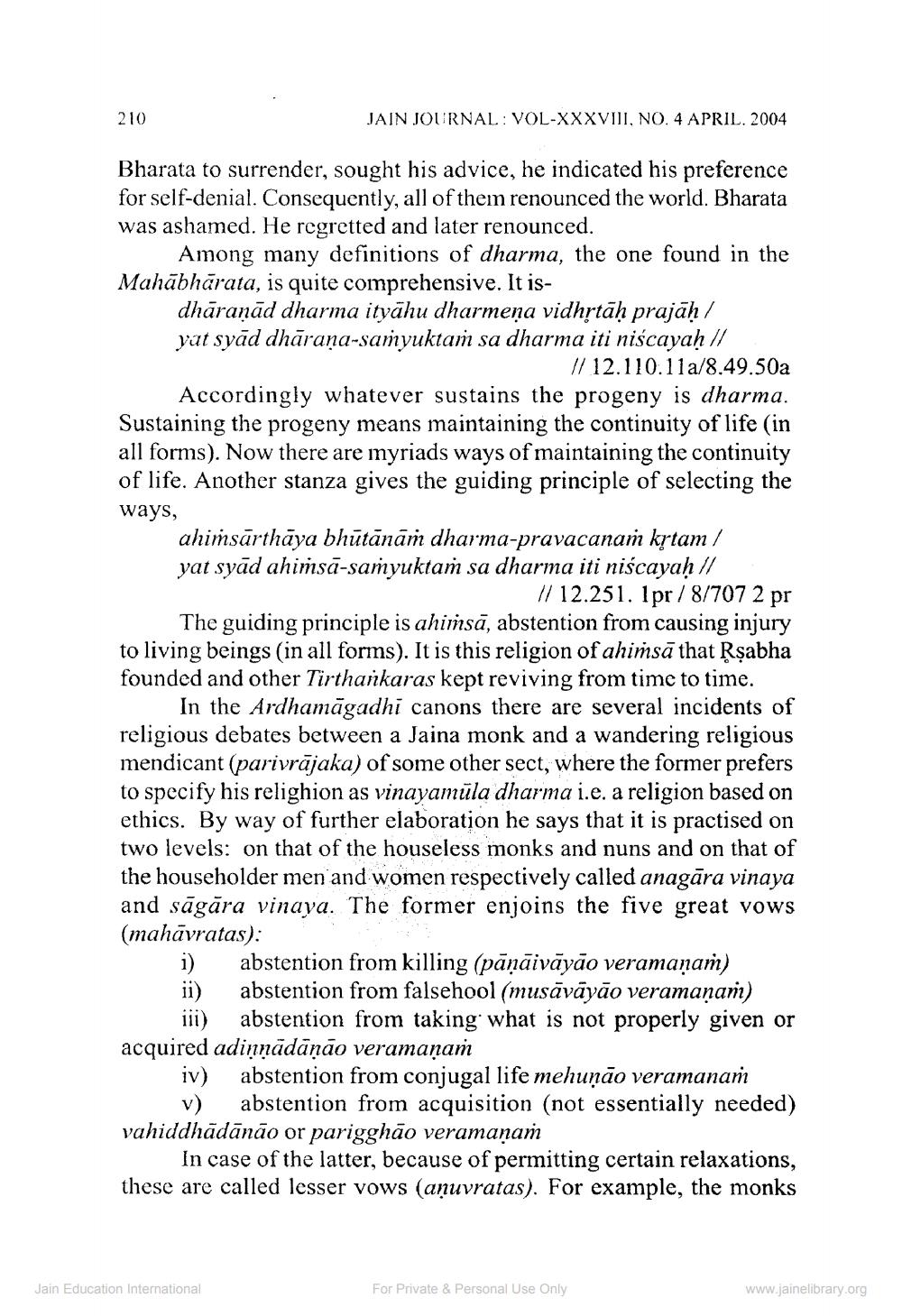Book Title: Jain Journal 2004 04 Author(s): Jain Bhawan Publication Publisher: Jain Bhawan Publication View full book textPage 9
________________ 210 JAIN JOURNAL: VOL-XXXVIII, NO. 4 APRIL. 2004 Bharata to surrender, sought his advice, he indicated his preference for self-denial. Consequently, all of them renounced the world. Bharata was ashamed. He regretted and later renounced. Among many definitions of dharma, the one found in the Mahābhārata, is quite comprehensive. It is dhāraṇād dharma ityāhu dharmeņa vidhrtāḥ prajāḥ/ yat syād dhāraṇa-samyuktam sa dharma iti niscayaḥ // // 12.110.11a/8.49.50a Accordingly whatever sustains the progeny is dharma. Sustaining the progeny means maintaining the continuity of life (in all forms). Now there are myriads ways of maintaining the continuity of life. Another stanza gives the guiding principle of selecting the ways, ahiṁsārthāya bhūtānāṁ dharma-pravacanam krtam / yat syād ahimsā-samyuktam sa dharma iti niscayaḥ // // 12.251. 1 pr/8/707 2 pr The guiding principle is ahimsā, abstention from causing injury to living beings (in all forms). It is this religion of ahiṁsā that Rşabha founded and other Tirthankaras kept reviving from time to time. In the Ardhamāgadhi canons there are several incidents of religious debates between a Jaina monk and a wandering religious mendicant (parivrājaka) of some other sect, where the former prefers to specify his relighion as vinayamūla dharma i.e. a religion based on ethics. By way of further elaboration he says that it is practised on two levels: on that of the houseless monks and nuns and on that of the householder men and women respectively called anagāra vinaya and sāgāra vinaya. The former enjoins the five great vows (mahāvratas): i) abstention from killing (pāņāivāyāo veramaņam) ii) abstention from falsehool (musāvāyāo veramaņam) iii) abstention from taking what is not properly given or acquired adinņādāņāo veramanam iv) abstention from conjugal life mehuņão veramanam v) abstention from acquisition (not essentially needed) vahiddhādānāo or parigghão veramanam In case of the latter, because of permitting certain relaxations, these are called lesser vows (aņuvratas). For example, the monks Jain Education International For Private & Personal Use Only www.jainelibrary.orgPage Navigation
1 ... 7 8 9 10 11 12 13 14 15 16 17 18 19 20 21 22 23 24 25 26 27 28 29 30 31 32 33 34 35 36 37 38 39 40 41 42 43 44 45 46 47 48 49 50 51 52 53 54 55 56 57 58 59 60 61 62 63 64 65 66 67 68 69 70 71 72 73 74
